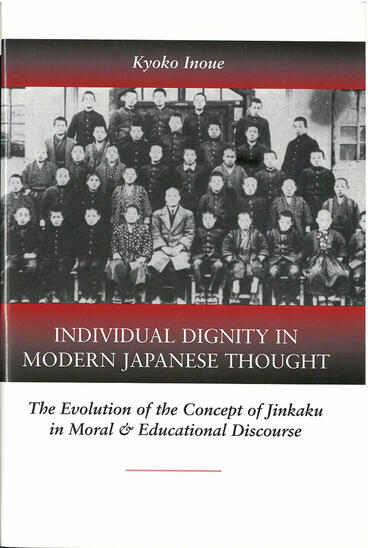Individual Dignity in Modern Japanese Thought
The Evolution of the Concept of <em>Jinkaku </em>in Moral and Educational Discourse
Traces the development of jinkaku (moral character) in modern Japanese discourse
Description
The American draft of the Japanese Constitution included an article declaring that each individual was entitled to respect simply by virtue of being a human being. The Japanese, however, interpreted this concept as “respect for jinkaku (moral character).”Jinkaku was a strongly elitist concept that gradually acquired more egalitarian meanings during the Taishō period. Yet the hierarchical connotations were still present when the term was used to interpret “individual dignity” in the Constitution and was later made the foundation of postwar Japanese education. As Japanese discourse began to embrace the American idea that all people are worthy of respect just because they are human beings, and thus their fundamental rights must be protected, it did not adopt the American emphasis on protecting individual rights against the government. Consonant with the ideas embodied in the Constitution, the Japanese teach that government and the people are jointly responsible for bringing about a fair and just society for all. Textbooks thus promote a communitarian rather than individualistic view of democracy.Individual Dignity in Modern Japanese Thought is important for scholars of modern Japanese intellectual history and Japanese democracy, for political scientists interested in political socialization, and for scholars of comparative history, law, politics, and education.
Kyoko Inoue is Professor of English, University of Illinois, Chicago. Her publications include MacArthur’s Japanese Constitution: A Linguistic and Cultural Study of Its Making (1991), a Choice Outstanding Book of the Year.

